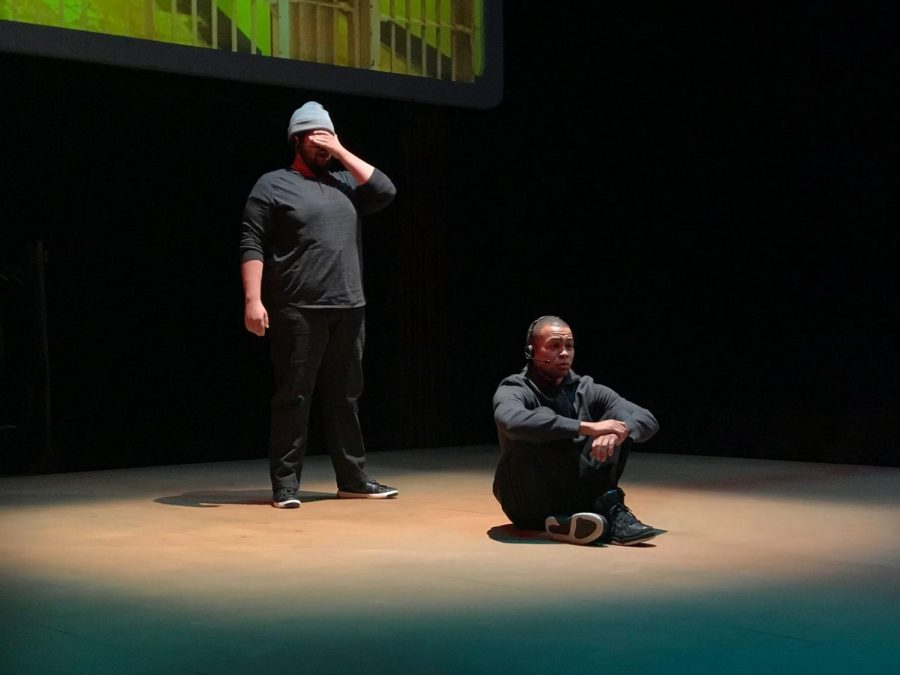NIU play spotlights racial issues in society
September 27, 2019
“The Shipment,” performed by the School of Theater and Dance, acknowledges the obstacles many people of color face everyday in a humorous yet frightening manner.
Playwright Young Jean Lee’s play will be performed in the Black Box Theater 7:30 p.m. Friday and Saturday, 2:00 p.m. Sunday, and 7:30 p.m. Oct. 3, 4 and 5. Students can watch for $9, adults $17, seniors for $14, and $6 for a child.
Director Mikael Burke said Lee wanted to write something that scared her.
“She wanted to write about the experience of living in America as a non-white person, as a race that is not her own, [and] the experience of being black in the theater industry in this country,” Burke said.
The writing of the play does a successful job portraying what Lee finds scary while raising awareness in the process.
The director and cast members understand how this play could seem like an offensive hit at white people, but it’s not in the slightest.
When cast member Brandon Sapp, Rapper Omar, Singer 3, and Michael tells people to come see the play, he doesn’t tell them to come see the black experience. The play is for everyone, he said.
“This is a play that teaches world perception that we all need to think about; [it’s] a universal message,” Sapp said.
Commonly, when presented with a play that highlights white privilege and the roadblocks white people have created, there can be a sense of guilt from white people.
“The play is not about saying white people are bad. [They] need to wake up and acknowledge the system [they’ve] created and the way it’s impacting [people of color] so we can all move past it,” Burke said.
The play does an excellent job of shedding light on difficult topics, allowing audience members to digest such things in an enlightening fashion, without spreading more hate. Those difficult topics can be uncomfortable for some.
“You may feel uncomfortable, but you’re supposed to be uncomfortable,” cast member Tiera Whalum said.
Seldom do students of color receive the opportunity to see a play where they can see themselves on stage, where they can hear feelings of oppression and relate to them.
“This is the first show we’ve done like this in a long time,” Whalum said. “This is something students of color on campus can identify with.”
Whether a student is white or of color, this play is a way to connect with one another and empathize with a friend or a chance to be introspective. Through the stories of young African Americans, feelings of injustice and inequality proke auridence and allow them to open their eyes to perspectives they may have been blind to.
“There is not just one way to be black,” Burke said. “There are as many different black experiences as there are black bodies on this planet.”
As the actors performed on stage their movements resembled fragmented video game character standing in one position, a symbol that people of color are puppets under the control of white people in power.
The audience sees white supremist control when the actors are held by mute white people dressed in all black clothing. After each performance, the mute white people walk toward an actor and direct them off stage. In between performances, these mute white actors would change other actors’ clothes as they stood, doll like and lifeless.
Even on stage acting, the cast is still controlled in a sense, unallowed to be their own self with talents and opportunity because they are still in the palm of a white person’s hand. This subtle message speaks volumes and communicates a recurring frustration without explicitly targeting another person.
“I want the audience to leave thinking, to have more of a societal reflection,” cast member Jonathan O’Brien said.







